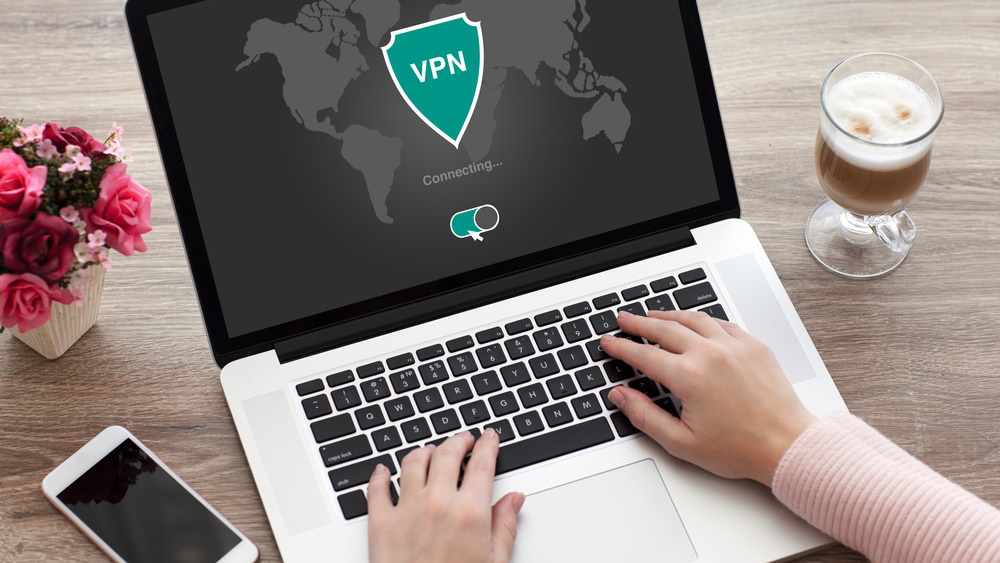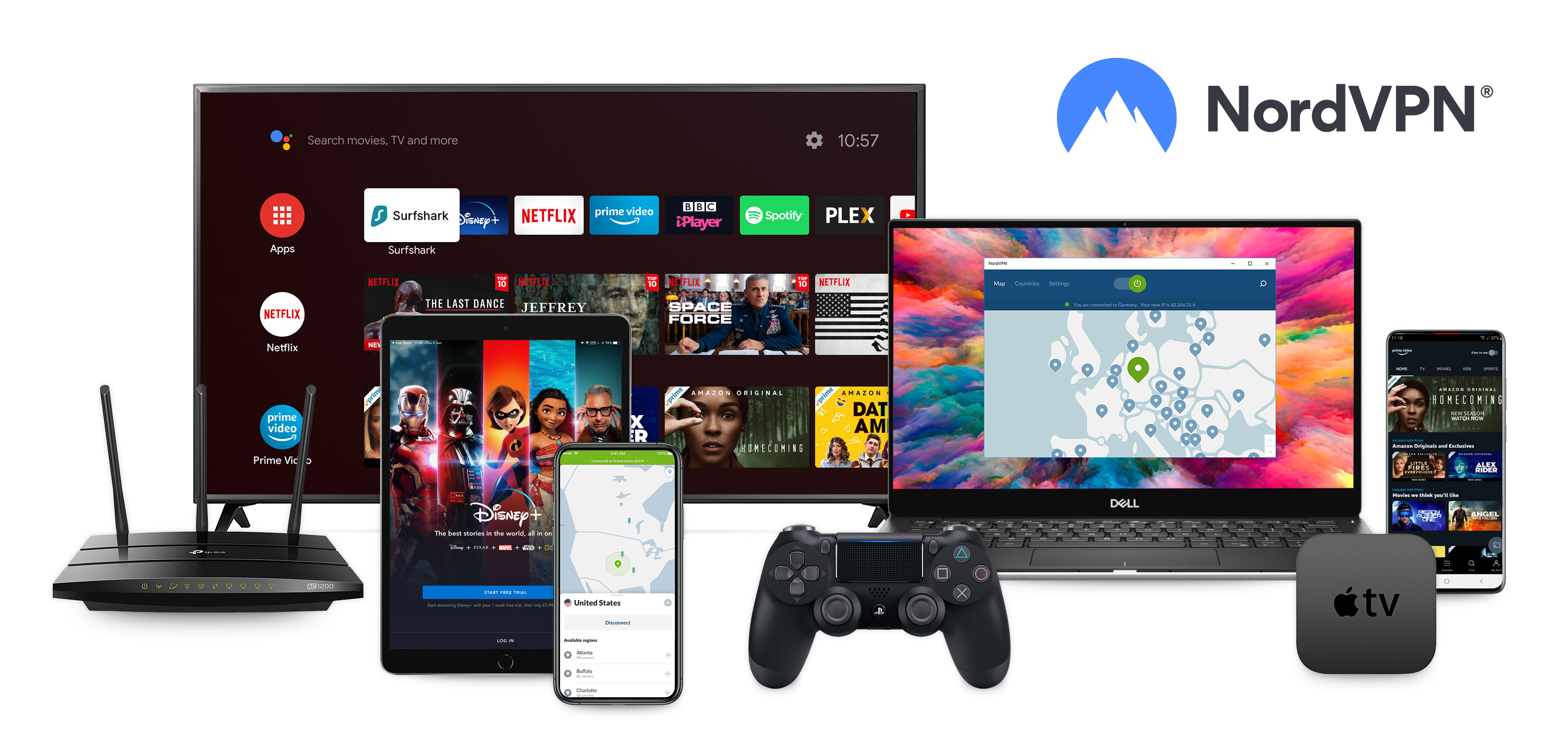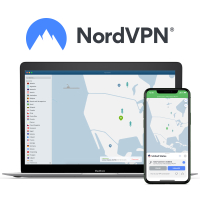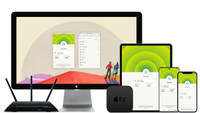What is a VPN?
Wondering what VPNs are? Or how they work? I'll dig in to the VPN meaning – without the jargon.

If you like to peruse YouTube, or are a fan of podcasts, chances are you've heard some of your favourite creators extolling the virtues of VPNs. You might recall them saying that this handy bit of digital security software can prevent your login details from falling into the hands of hackers, make your gaming sessions smoother and even help you unblock shows and movies from other countries. The best part is, all of this is true!
This obviously sparks some questions – what actually is a VPN? How does it work? Do you really need to use one even if you just use the internet to scroll through social media and binge-watch Netflix? Unfortunately, if you do a quick Google, a lot of the answers to these questions tend to be laden with jargon, with the answer-provider assuming that you're familiar with all sorts of different kinds of technology. This can lead to the assumption that VPNs are for experts only, which couldn't be further from the truth. Nowadays, all the best VPNs are made for all consumers, not matter their level of technical literacy.
When you use a VPN (or virtual private network), it routes your internet traffic through a secure tunnel, encrypting it and therefore hiding it from anyone who might be trying to snoop on it. This massively boosts your online privacy. Plus, as a VPN works by routing your connection through a server, if you pick a server in a different location you can spoof your location to there, unblocking region-specific content quickly and easily.
If you're looking for more info on all things VPN, simply read on for all this and more – I'll even explain how using a VPN can help level up your online experience.

I've been in charge of Tom's Guide's VPN articles since 2020, and in that time I've helped test and review over 100 VPN providers for both Tom's Guide and TechRadar. I strongly believe that privacy, price, and ease of use all go hand in hand to make the very best VPN.
I've covered cybersecurity and tech in TechRadar, T3, and What Hi-Fi?, and you'll also find my work in titles from Watkins Publishing, and even the halls of the Metropolitan Museum of Art.
Top 3 VPNs in 2025
1. NordVPN: the best VPN in 2025
If any VPN has become a household name over the last few years – it's NordVPN. The hype is well-deserved, too, because you're getting way more than just a VPN. NordVPN is an all-in-one security suite that can block ads, stop malware, and ensure your all important details stay out of the reach of grabby cybercriminals.
I'm always blown away by NordVPN's unblocking power. It's my #1 pick for Netflix, and recording blistering speeds of over 950 Mbps during my most recent round of testing. So, your HD streams will stay crystal-clear and buffer-free. Check NordVPN out for yourself with a 30-day money-back guarantee.
2. ExpressVPN: best VPN for beginners
ExpressVPN is a great choice for beginners to VPNs thanks to its simple yet effective apps that are available across a range of devices in addition to great unblocking capabilities and top-of-the-range privacy.
Speaking of privacy, all ExpressVPN plans have a free password manager, and Tom's Guide readers get access to a year of Backblaze cloud storage for free, plus three months of VPN cover free (working out as a 49% discount!) and you'll also get a 30-day money-back guarantee.
3. Surfshark: the best cheap VPN
If you're more budget-conscious, Surfshark is a great option. This VPN gives you premium features like super fast connections and excellent privacy, without a huge price tag.
Not only does Surfshark boasts servers in 100 countries on top of great unblocking capabilities and privacy features, it offers all this for only $2.29 a month, with two months free.
Recent updates
We've given this page a bit of TLC, including new FAQs, and a simple guide to installing a VPN. The page also received some much-needed navigation upgrades, so you'll be able to click around the article with reckless abandon.
What are VPNs for?
It's worth considering which kind of VPN you're interested in before considering the purpose. A business VPN like the one you may use at work (or when working from home) is an essential tool for connecting remote users to a single Intranet and accessing restricted files. It will have specialized tools to allow teams to work well together like dedicated IPs and a central management system, but you won't want to use it for more recreational reasons.
A consumer VPN – the ones you see advertised in YouTube videos and on TV – are optimized for personal use. That means while you won't be able to connect to particular restricted Intranets, you probably won't want to, either.
The purpose of a consumer VPN is to provide the user with privacy and security online, allow access to sites that are blocked by your Internet Service Provider (ISP) or government, and change region on Netflix to watch exclusive content for free.
Sign up to get the BEST of Tom's Guide direct to your inbox.
Get instant access to breaking news, the hottest reviews, great deals and helpful tips.
This is done by rerouting your Internet connection away from your ISP's servers and through the VPN's servers. There are multiple benefits to this, but the three most important reasons are to hide your activity from your ISP (which is likely to log any suspicious activity), change your IP address so that your activity can't be linked back to you by other websites, and to change your apparent location.
In short, a VPN can make you appear to be a totally different person online. That helps to avoid ad trackers, access different content that may be blocked by your ISP, and ensure all your browsing can't be linked back to you.
What are VPN protocols?
The best secure VPNs use several protocols that encrypt data traffic. This is especially important because data is being transmitted over a public network between two remote locations.
The most popular VPN protocols include:
- Internet Key Exchange (IKEv1 and IKEv2)
- IP Security (IPSec)
- OpenVPN
- WireGuard
Most of the time, you'll use OpenVPN and WireGuard, as these are today's gold standard, balancing battle-tested security with the speed you need to stream, game, and browse without hiccups. The best mobile VPN services will also often use IKEv2 thanks to the fact it copes with unstable connections more effectively.
In all protocols, both endpoints – your computer, smartphone, or router – and the VPN server, use a "handshake" method of authentication. To successfully initiate this connection, the connecting computer must share a key that matches the required parameters for the receiving location.
Why do I need a VPN?
Consumer VPNs have a huge amount of advantages. You'll be able to access sites like torrent repositories that may be blocked by your ISP. If you're in a country like China or the UAE, you'll be able to sidestep government restrictions. If you use one of the best Netflix VPNs, you'll be able to watch shows on it that aren't available in your country, and even access country-specific services you pay for like Hulu and HBO Max if you're out of your home country.
What's more, if you take the right precautions alongside using the VPN (for example, browsing in Incognito mode and not entering personal data), you can also avoid linking yourself to any activity you'd prefer to keep totally private.

Are there downsides to using a VPN?
It's well-known that many VPNs do have an impact on performance. That's almost inevitable thanks to the fact that you're essentially making your connection travel further. However, if you pick a fast VPN you won't notice much of a difference at all.
If you choose to try out a free VPN, even if it is one of the best free VPNs, you'll also be subjected to certain limitations. For example, you may have a data limit, and almost invariably you won't be able to access streaming site – plus, free services often aren't as secure as paid ones.
The Tom's Guide team is always putting VPNs to the test – and we'll let you know the good, the bad, and the ugly that we uncover in our results. Visit our VPN testing methodology page for more information about our process.
It's also worth noting that on rare occasions you may be faced with CAPTCHA tests on some sites when using a VPN. This is because a VPN's IP addresses are shared between users, and some sites may detect 'unusual' activity. In our experience, however, this is fairly unobtrusive and is preferable to the unprotected alternative.
Finally, it's essential you make sure to sign up for a reputable VPN provider – taking your pick from any of our guides is a good place to start. If you choose to go with a lesser service (especially, for example, a free Android VPN) you may be putting yourself in danger of having your data stolen and leaked.
Is a VPN enough?
For many people, a VPN will offer enough functionality to get more out of the web and stay safe online. It'll get access to more streaming content, stop ad trackers collecting your data, and keep you safer by encrypting your traffic on public Wi-Fi.
However, if you're looking for true web privacy, there are a number of other steps you should take to ensure you're staying anonymous.
First of all, use Incognito or private browsing mode. That means your history will not be saved, and, depending on your settings, cookies will be disabled. Plus, you won't be automatically signed into websites, which is an easy way of linking your fresh IP straight back to you.
Beyond that, using Tor Browser is even more secure, and for ultimate untraceability you may want to consider using the Tails OS. With each step you'll find usage becomes more and more inconvenient, so it's worth considering just how private you need to be.
As always, though, you – the user – are the weakest link. If you're not careful about inputting personal information, no matter how well-protected your connection is you can be discovered. That won't be a huge issue for most, but no matter what precautions you take to secure your connection, you need to match that with your own diligence and common sense.
FAQs
Do I really need a VPN?
Yes – as the unfortunate truth is that the internet is full of threats to your digital security. A VPN's encrypted tunnel keeps your data secure from third-party snoops and hackers, reducing the risk of identity fraud and theft, and can even help banish invasive ads that use your browsing history to create tailored campaigns.
How much does a VPN cost?
VPNs are available at all price ranges – so you're bound to find a service that suits your budget. Premium providers come with all the bells and whistles, like antivirus features and password managers, though you'll likely have to pay more for the privilege. You can save money by choosing a service that offers the tools you'll actually use, and make sure to check out our VPN deals page for all of the latest and greatest offers.
How do I set up a VPN?
Don't worry, getting your VPN up and running is quick and easy. All you need to do is:
1. Choose a provider, pick a plan, and download the right app for the device you're using.
2. Log in to the app.
3. Choose a server to join (locations near you will be quicker, but you'll unblock different content in cities overseas) and hit the connect button.
4. Wait a moment, and you're ready to go.
Disclaimer
We test and review VPN services in the context of legal recreational uses. For example: 1. Accessing a service from another country (subject to the terms and conditions of that service). 2. Protecting your online security and strengthening your online privacy when abroad. We do not support or condone the illegal or malicious use of VPN services. Consuming pirated content that is paid-for is neither endorsed nor approved by Future Publishing.

Mo is VPN editor at Tom's Guide. Day-to-day he oversees guides on the best VPNs, privacy, and cybersecurity content, which includes making sure all his recommendations are up to date, accurate, and as useful for the reader as possible. He's a daily VPN user himself – typically NordVPN, but he enjoys a variety – and as a digital privacy advocate he believes that every step should be taken to protect yourself online.



